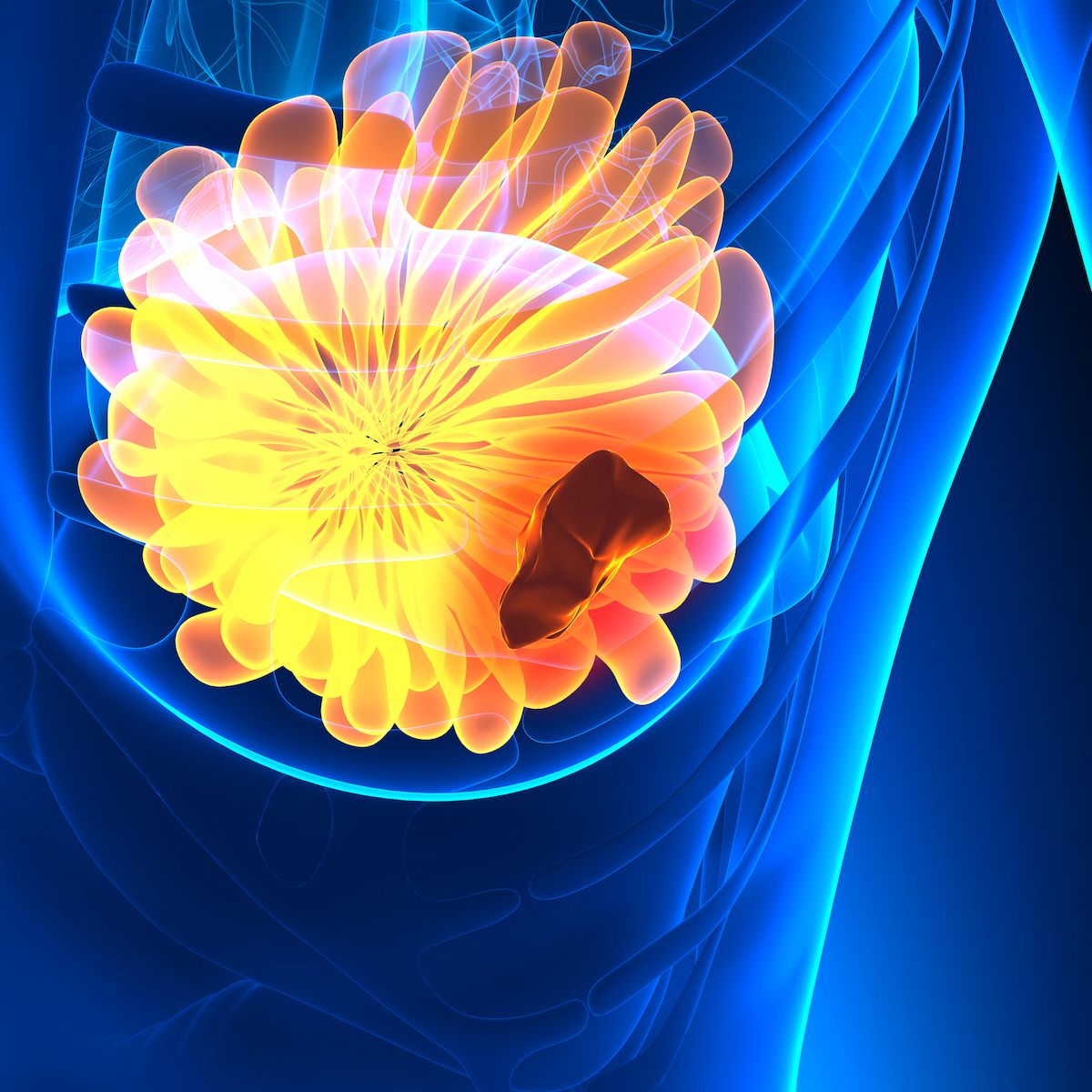Capivasertib Combo Earns European Approval in ER+/HER2– Breast Cancer
Data from CAPItello-291 support the approval of capivasertib/fulvestrant for ER-positive, HER2-negative breast cancer in the European Union.
"Today’s approval is welcome news for approximately half of [patients with] ER-positive breast cancer in Europe who have tumors with these biomarkers, and it is important for clinicians to test and identify eligible patients who may be able to benefit from this combination," according to Mafalda Oliveira, MD, PhD.

Capivasertib (Truqap) plus fulvestrant (Faslodex) is now approved in the European Union for adults with estrogen receptor (ER)–positive, HER2-negative, locally advanced or metastatic breast cancer harboring at least 1 PIK3CA, AKT1, or PTEN alteration previously managed with endocrine-based treatment, according to a press release from the developer, AstraZeneca.1
The European Medicines Agency’s Committee for Medicinal Products for Human Use previously issued a positive opinion in support of the regimen’s approval in this population in April 2024.2 Supporting data for the European approval came from the phase 3 CAPItello-291 trial (NCT04305496).
According to findings published in The New England Journal of Medicine, the median progression-free survival (PFS) was 7.3 months in patients who received capivasertib/fulvestrant compared with 3.1 months in those who received placebo/fulvestrant (HR, 0.50; 95% CI, 0.38-0.65; P <.001).3 At 18 months, the estimated overall survival (OS) rate was 73.9% (95% CI, 68.3%-78.7%) vs 65.0% (95% CI, 58.7%-70.6%) in each respective arm across the overall population (HR, 0.74; 95% CI, 0.56-0.98). Additionally, the respective 18-month OS rates were 73.2% (95% CI, 64.8%-80.0%) vs 62.9% (95% CI, 53.1%-71.2%) among patients with alterations in the AKT pathway (HR, 0.69; 95% CI, 0.45-1.05).
Grade 3 or higher adverse effects (AEs) in the capivasertib and placebo arms, respectively, included rash (12.1% vs 0.3%), diarrhea (9.3% vs 0.3%), and hyperglycemia (2.3% vs 0.3%). In each respective arm, 13.0% and 2.3% of patients discontinued therapy following AEs.
“Patients with advanced ER-positive breast cancer typically experience tumor progression or resistance with widely used endocrine-based treatment regimens, and there is an urgent need to provide them more time with their disease under control,” Mafalda Oliveira, MD, PhD, Vall d’Hebron University Hospital, and senior clinical investigator of the Vall d’Hebron Institute of Oncology’s Breast Cancer Group in Barcelona, Spain, said in the press release.1 “Today’s approval is welcome news for approximately half of [patients with] ER-positive breast cancer in Europe who have tumors with these biomarkers, and it is important for clinicians to test and identify eligible patients who may be able to benefit from this combination.”
In the double-blind, phase 2 CAPItello-291 trial, 708 adult patients were assigned 1:1 to receive capivasertib orally at 400 mg twice daily for a 4-days-on/3-days-off schedule or matched placebo in combination with fulvestrant at 500 mg intramuscularly every 2 weeks for the first 3 injections followed by every 4 weeks thereafter. The dual primary end points were PFS across the overall population and among those with PIK3CA, AKT1, or PTEN alterations.
The FDA approved capivasertib/fulvestrant in November 2023 for those with previously treated, locally advanced or metastatic, hormone receptor (HR)–positive, HER2-negative breast cancer with 1 or more PIK3CA, AKT, or PTEN alterations.4 Additionally, the Ministry of Health, Labour, and Welfare approved capivasertib/fulvestrant in Japan for the same patient population in March 2024.5 Both approvals were based on data from the CAPItello-291 trial.
“The approval of capivasertib and fulvestrant signifies a new era of care in advanced [HR]-positive breast cancer in Japan, providing a much-needed new treatment option for approximately half of the patients in this setting who have tumors harboring mutations in PIK3CA, AKT1 or alterations in PTEN. It is important for us to detect these specific tumor biomarker alterations in each patient we see so that they are potentially able to benefit from this important combination to extend the effectiveness of endocrine-based treatment and delay disease progression,” Masakazu Toi, MD, PhD, the director of Tokyo Metropolitan Cancer and Infectious Diseases Center at Komagome Hospital, Japan, said in a press release at the time of the Japanese approval in March 2024.5
References
- Truqap plus Faslodex approved in the EU for patients with advanced ER-positive breast cancer. News release. AstraZeneca. June 20, 2024. Accessed June 20, 2024. https://tinyurl.com/4dfb7pwd
- Truqap plus Faslodex recommended for approval in the EU by CHMP for patients with advanced ER-positive breast cancer. News release. AstraZeneca. April 29, 2024. Accessed June 20, 2024. https://tinyurl.com/5n7jz645
- Turner NC, Oliveira M, Howell SJ, et al. Capivasertib in hormone receptor–positive advanced breast cancer. N Engl J Med. 2023;388(22):2058-2070. doi:10.1056/NEJMoa2214131
- FDA approves capivasertib with fulvestrant for breast cancer. News release. FDA. November 16, 2023. Accessed June 20, 2024. https://tinyurl.com/4rc8w8xn
- Truqap plus Faslodex approved in Japan for patients with advanced HR-positive breast cancer. News release. AstraZeneca. March 27, 2024. Accessed June 20, 2024. https://tinyurl.com/3ps6pepp